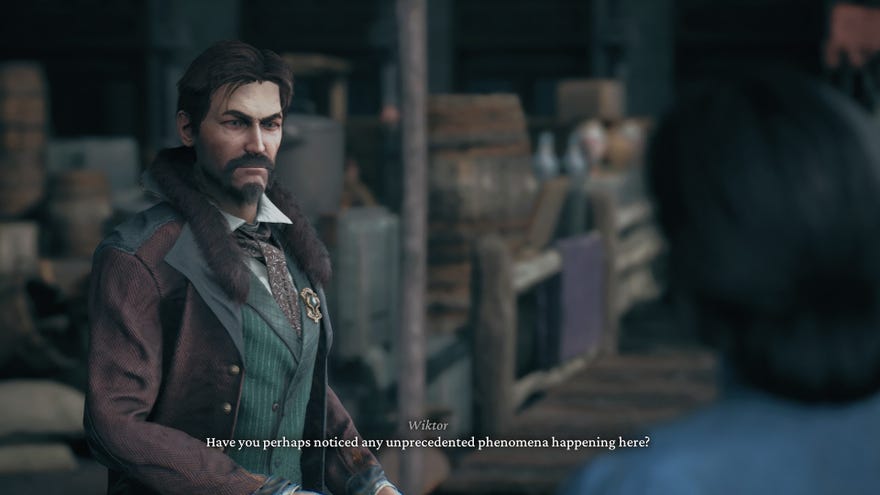The Thaumaturge review: a knotty detective RPG brewed in a rich, historical melting pot
Monsters in my pocket
When we first meet The Thaumaturge's hero Wiktor Szulski, we're told he's a man cursed by the vice of pride. It's a trait that sits at the heart of his personality, and in this particular alt-history telling of Polish turmoil in Warsaw at the turn of the twentieth century, such 'Flaws' can also attract the attention of otherworldly beings called Salutors - vicious creatures of myth and folklore who follow their quarry around like dark and gloomy shadows, amplifying their worst qualities and, in many cases, driving them to emotional, and often violent, extremes. It's these outbursts that Wiktor will be investigating over the course of this curious detective RPG from the makers of Seven: The Days Long Gone and the upcoming The Witcher 1 Remake, as fortunately for him, Wiktor comes from a long line of storied Salutor tamers, his thaumaturgic know-how allowing him to see these monsters made flesh, exorcise them from their human host, and use them for his own gains.
He's a man that's ultimately made peace with his own arrogance, then, but considering everything he goes through during The Thaumaturge's 25 hour-odd run-time, I reckon his pride is pretty justified. Not only is he able to brush off multiple stab and gunshot wounds and clubs to the face when he gets in a fight, but he also achieves several feats of thaumaturgy that we're repeatedly told are thought to be nigh on impossible. Indeed, at the start of this game, his connection with his original Salutor Upyr is hanging by a thread, his worst instincts having got the best of him in a recent attempt to tame and capture a second beast from the ether. By the end, however, I had six Salutors at my beck and call, out of a total of eight. Wiktor is very much a force to be reckoned with, and he makes for a highly compelling lead as you navigate the branching storylines in Warsaw's political hotbed.
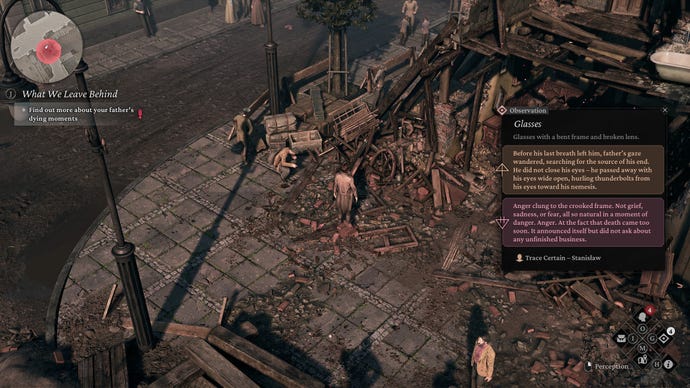
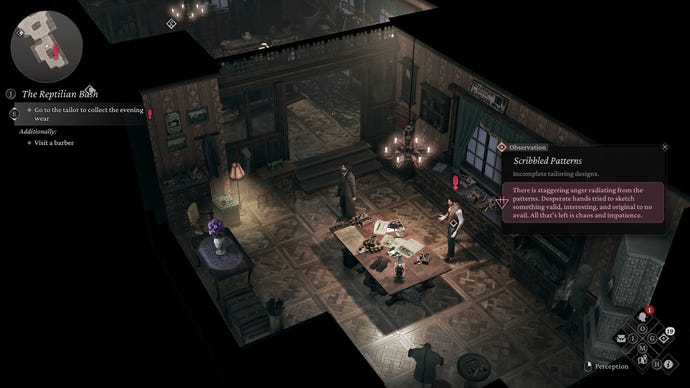
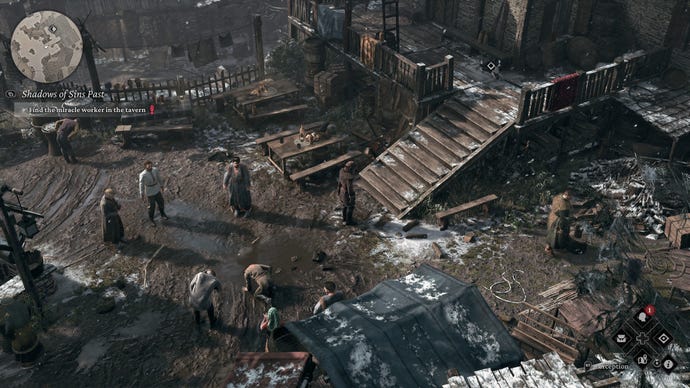
For all its supernatural themes, the events of The Thaumaturge are very much rooted in real-world history. Set in 1905, this is the year that the First Russian Revolution was just starting to kick into gear, and many of the sidequests and incidental details you'll come across on Wiktor's journey all lean on the political and social unrest of the time. Workers strikes, peasant uprisings, and religious and nationalist discrimination are all woven into the detailed, narrative fabric of The Thaumaturge, as are real historical figures such as Tsar Nikolai II and the mystic Grigori Rasputin. The latter becomes particularly entwined with Wiktor over the course of the game, as Rasputin isn't just responsible for enabling Wiktor to handle and tame more and more Salutors, but his rise to power and cult figure-like status is also intimately tied to the game's central plot.
Now, as someone whose knowledge of eastern European history ranges from spotty to non-existent, this alone is enough to make The Thaumaturge quite a fascinating and intriguing proposition. To my eyes and ears, at least, Fool's Theory present a rich tapestry of viewpoints and perspectives here, with lower class folks regularly calling out Wiktor's posh boy status, and challenging him on his right to stick his nose in all sorts of business that has nothing to do with him. Wiktor must also navigate the pressures of trying to return to high society as well, his travels and thaumaturge background having long since alienated him from his peers, and this feeling of never quite fitting in anywhere provides a fantastic stage on which players to role-play Wiktor as they see fit.
Dialogue options are both plentiful and nuanced enough for Wiktor to feel like a distinct product of the player's choices in The Thaumaturge, his responses rarely falling into that familiar trap of being 'obviously good' or 'very clearly bad'. There are polite ways to play him, sure, but there's enough moral greyness here that you'll almost always be disappointing someone around you at the time, with Telltale-style 'So and so will remember this' prompts making you take extra care in how you come across.
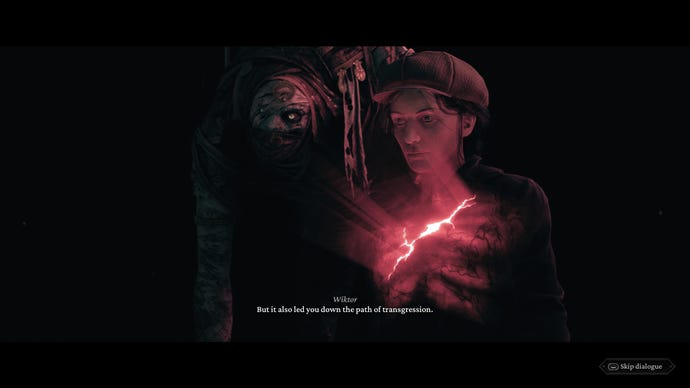
Well, assuming that you want to play as a nice-ish version of Wiktor, at least, as you can also indulge in his arrogant streak by selecting specific 'proud' dialogue options, too, letting him go full asshole if you wish. These proud responses are both based on your current pride level, and feed it at the same time, giving each wanton slip a pleasingly cumulative effect as the game goes on. He can become quite a nasty piece of work if you choose to go down this route, but resist those temptations and certain prideful responses will become locked off, for example, as they'd be too out of character for your Wiktor to contemplate. Or at least that's what I assume, as the game never actually tells you what these responses might have been. It's a neat compromise, in any case, as it prevents those moments of disappointing disconnect between what you think a dialogue option's going to be and what it actually results in, while still letting you wallow in occasional, but pointed displays of Wiktor's smugness in a way that still feel true to your choice of role-play.
That said, it's not just the Flaw of pride that Wiktor embodies. As you return to your childhood home in Warsaw to investigate your estranged father's mysterious death, your investigations inevitably bring you into contact with other Flaw holders, and thus other Salutor hosts. Part of your job as a Thaumaturge will be to cleanse these individuals of their worst habits, sometimes to get important information out of them and make them realise the error of their ways, but mostly so you can possess and tame their respective Salutor. However, to keep that Salutor means Wiktor must also bear the burden of their respective Flaw, and it's these other vices that never really get a look in after Wiktor's dealt with the problem at hand. The idea of a man taking on the brunt of the world's evils is a powerful one that's packed with role-playing potential, so it's a shame that Wiktor's personality doesn't end up morphing more as the game progresses.
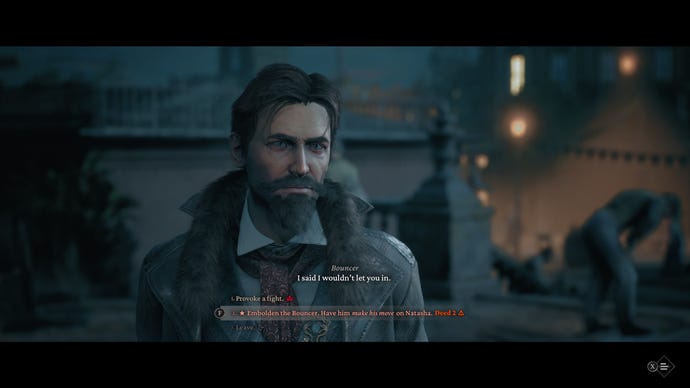
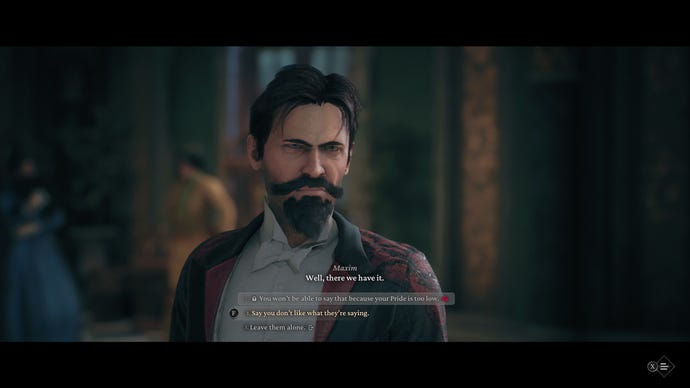
Still, even if these Salutors end up as little more than glorified (albeit horrifying) Pokémon which Wiktor can use to help him win the truly staggering number of fights he becomes embroiled in during the game, their value is not to be underestimated. The Thaumaturge's turn-based brawls are meaty, cerebral and strategic affairs that can quite easily end in defeat if you don't keep an eye on the turn order and the speed at which attacks play out during each round, but dispatching foes quickly is only part of what makes these scraps so fun to play. Very soon in Wiktor's journey you'll start encountering enemies with certain traits that can only be disabled by attacking them with certain Salutors. These traits can range from self-healing to being impervious to stat changes, or even fortified defences that render your attacks all but useless. Unpicking these obstacles while keeping Wiktor alive, disrupting turn orders, and breaking an opponent's focus to leave them open to devastating heavy attacks - all to the sound of urgent piano quavers and mournful string melodies - is properly thrilling stuff, whether you're dealing with thuggish rabble rousers or high society toffs who think they're better than you.
Salutor battles are a real spectacle as well, their large, nightmarish forms filling the screen as they chuck multiple rounds of shadow humans at you. You'll have fought hard to get to this point, chasing down leads on the streets of Warsaw, following trails of evidence across multiple districts and homes around the city, and unearthing hidden clues in the environment using your thaumaturgic detective senses, all before coaxing the host into revealing their true nature through careful conversation choices. It's a lot of legwork, but the payoff is worth it - and every time I ran into a dialogue choice that revealed 'something still eluded me' in my line of enquiry, I felt compelled to take a step back, and seek out that extra evidence that would push me over the finishing line. Indeed, some Salutors are only found by pursuing certain sidequests (which often feel as substantial as some of the main story missions), and there were moments where not dotting the 'i's and crossing the 't's led to a beast slipping through my fingers, never to be seen again.
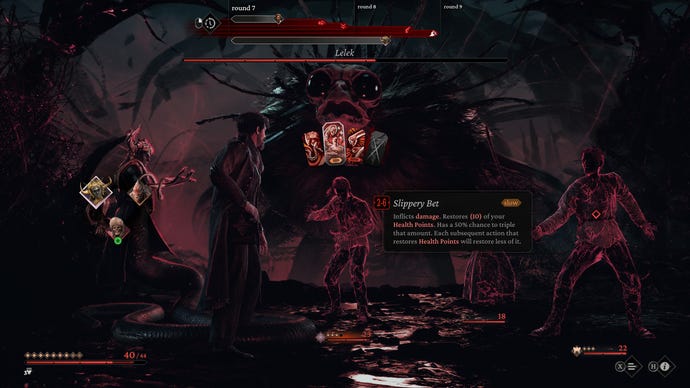
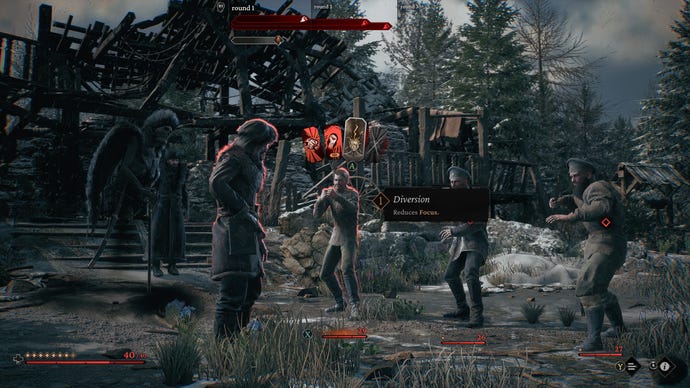
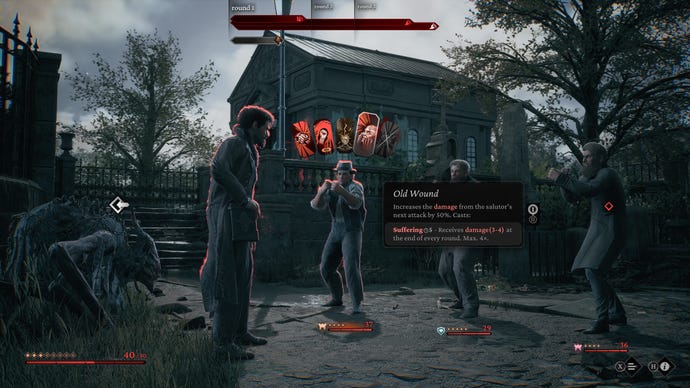
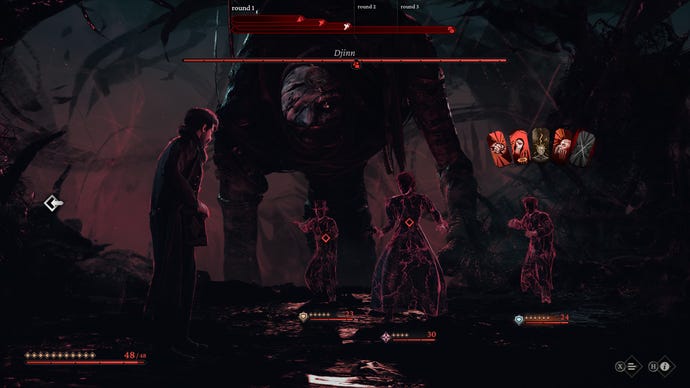
Accumulating these Salutors doesn't just give you more options in battle, either. As you explore the city, pick up clues, engage in fights and complete all manner of different side activities, you'll also gain experience that culminates in spendable Thaumaturgy points. These can be spent on upgrading your Salutors' abilities, which in turn strengthens the particular 'Dimension' of thaumaturgy they belong to. There are four Dimensions in total (with two Salutors attached to each), and certain dialogue options will require you to have a Word level of 5, say, or a Mind level of 7, in order to make that particular choice. This can be vital in nailing the outcome of a particular case, as Wiktor can use these powers to manipulate people into giving up their secrets. The pace of the game is such that I always had enough points to do what I needed - it's certainly not stingy in that regard - though I was somewhat disappointed that there wasn't another option in a lot of these cases to obtain the answers I needed without resorting to such underhand tactics. Sure, playing with emotions is all part and parcel of being a thaumaturge, but outright mind control does feel like you're cheating a bit somehow.
Still, even with these small nitpicks, the important thing is that you can really see where and how your choices have affected the story, and crucially it does so in a way that feels organic and completely natural. It's never so obvious to point out what these characters remember about their encounters with you, and it leaves enough open to interpretation that you'll be wanting to start another playthrough almost as soon as you've finished the first to see how differently the game might have turned out. Some Salutors can be stolen or given away to other rival thaumaturges you encounter, for example, and the consequences of those decisions do have tangible effects on how the rest of the story plays out - both in terms of what you're able to do in the game, and how they interact with you later on.
It's artfully done, and it all helps to make The Thaumaturge feel like a satisfying and reactive, malleable concoction of your own making. Sure, there are places where you'll want more from its role-playing (and perhaps a touch more polish from its occasionally stilted animation and abrupt-feeling cutscenes). There are moments where you'll ache thinking about its squandered potential, that if only it had gone just one step further, then it would be a true all-timer of an RPG.
But that's also precisely why The Thaumaturge ends up feeling like such an interesting, rough-hewn gem of a game. It's those wonky edges and the almost-but-not-quite-there presentation of them that gives it such a unique sense of character and personality, as well as the space and depth to debate its themes and ideas long after the credits have rolled. There's a lot to applaud and admire here, particularly in how each one of its systems feeds and complements the others, and it makes its own crop of flaws easy enough to forgive and overlook when considered as a whole. Pride may not be the most favourable trait in the world of The Thaumaturge, but given what Fool's Theory have managed to accomplish here, I'd say they've got plenty to be proud about.
This review is based on a review build of the game, provided by publishers 11 Bit Studios.
